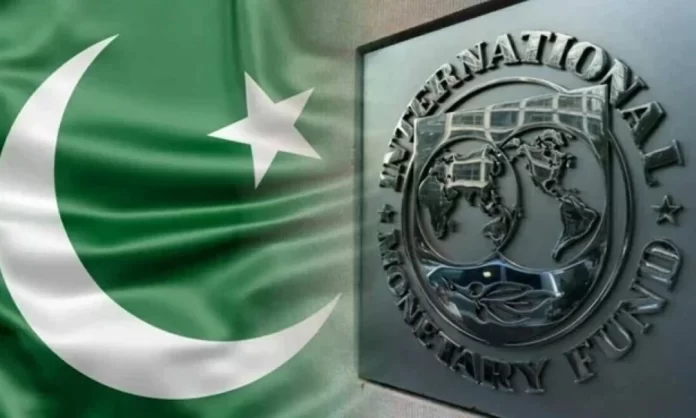ISLAMABAD: As Pakistan enters crucial budget negotiations with the International Monetary Fund (IMF), the global lender has sharpened its focus on two key areas: significant revenue-enhancing tax measures and a controversial rebalancing of the National Finance Commission (NFC) award, officials familiar with the matter told media on Friday.
According to sources, the IMF mission—currently engaging Pakistani authorities virtually from Turkey—is placing top priority on ensuring that Pakistan meets its ambitious tax collection target of Rs14.3 trillion for FY2025-26. The team, led by outgoing mission chief Nathan Porter, is expected to land in Islamabad next week for in-person talks concluding by May 23.
In high-level meetings held this week, Finance Minister Muhammad Aurangzeb was briefed on the IMF’s primary concerns, which include reworking the NFC distribution without altering the constitutional framework, cutting government size to reduce spending, and pushing forward the privatisation agenda.
Meanwhile the International Monetary Fund (IMF) has urged Pakistan to increase tax
revenues by Rs430 billion to set an ambitious Rs14.3 trillion tax collection target for the
upcoming 2025–26 federal budget, say various media reports.
This recommendation was made during the second round of virtual negotiations between the IMF and the government, where detailed discussions centered around revenue targets and fiscal policy.
One of the major flashpoints has emerged over tax relief for the salaried class. The Federal Board of Revenue (FBR) has proposed raising the income tax exemption threshold from Rs600,000 to Rs1.2 million annually and introducing new progressive tax slabs—10%, 25%, 33%, and 35%—with adjusted income thresholds.
However, the IMF has pushed back strongly, warning that the proposed relief could lead to a far greater revenue shortfall than estimated. In response, FBR has been directed to reassess the slab design.
Fresh data reveals that salaried individuals paid a record Rs437 billion in income tax during July–April FY2025—Rs150 billion more than the same period last year. With two months still to go, this additional contribution could reach Rs190 billion, far exceeding the Rs75 billion increase estimated last June.
Officials argue that the salaried class deserves relief of at least Rs100 billion to correct a long-standing imbalance in Pakistan’s tax structure. However, the IMF appears unwilling to compromise on its revenue targets.
During a key session, Pakistani officials cited the Laffer Curve theory—suggesting that lower tax rates could lead to higher compliance and revenue—but IMF officials reportedly dismissed this rationale, urging authorities to instead “listen to IMF experts” and stick to empirical projections, reported The Express Tribune.
The Fund also raised questions about the FBR’s analytical capacity and the credibility of revenue estimates tied to proposed policy changes.
The government has little room to offer meaningful relief to the real estate sector either. The current proposal includes a minor 0.5% cut in withholding tax on the sale and purchase of properties. While the FBR proposed treating these reduced rates as final liability, the finance minister reportedly insisted they remain adjustable.
Additionally, a new slab of capital gains tax on high-value real estate transactions is under consideration.
Efforts to reduce sales tax on packaged milk—from the current world-high 18% to 15% or 17%—also remain inconclusive. Internal discussions revealed that some FBR officials lacked even basic price data to support decision-making on this front. The failure to act on this front is especially alarming given Pakistan’s high malnutrition levels.
A proposal to impose federal excise duty on biscuits was also floated but later dropped due to internal disagreement, sparking criticism of the government’s perceived insensitivity toward low-income consumers.
Another contentious point under discussion is the gradual withdrawal of tax exemptions granted to the former Federally Administered Tribal Areas (FATA). Two options are being considered: introducing a standard 18% general sales tax or a lower 10% rate. However, a final call will be taken by senior leadership within the ruling PML-N.
The IMF’s push to rebalance the NFC award without amending the Constitution presents legal and political complexities. Currently, provinces receive 57.5% of federal tax revenues. A recent cabinet discussion suggested provinces contribute to the increase in defense spending in light of rising regional tensions, especially with India.
Observers note that such moves could provoke constitutional challenges and further strain centre-province relations, particularly in politically sensitive regions.
The ongoing budget negotiations come at a critical juncture as Pakistan seeks to secure a larger, long-term IMF programme. While the government is keen to provide electoral relief through targeted tax cuts, the IMF’s insistence on fiscal discipline may leave little room for manoeuvre.




